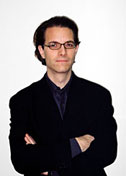Is the T. S. A. Gambling with Your Safety?

After the arrests in Britain involving a plot to bomb several airliners bound for the U.S., the Transportation Security Administration says it will train and deploy screeners in airports to identify terrorists using behavioral cues. But is this really the best way to secure the safety of our airways? Bernard L. Harcourt, a University of Chicago professor of law and the author of Language of the Gun, wrote an intriguing op-ed piece for the New York Times in which he discusses the shortcomings of the statistical methods behind behavioral profiling—a discussion that sets the stage for his forthcoming book Against Predicition: Profiling, Policing, and Punishing in an Actuarial Age.
Harcourt’s article makes the case that “investing heavily in seemingly high-tech airport security methods like behavioral profiling” is not a viable solution to securing the nation’s airways and, in fact, “may make air travel less safe on the whole.” Harcourt backs up his claim by citing the “many studies of the ability to detect truth and deception” recently conducted that, he says, have been “largely disappointing.”
“A review of the literature,” says Harcourt, “published in 2000 found that in experiments where subjects were trying to detect whether others were telling the truth or lying, the subjects had an overall success rate of 56.6 percent—slightly better than a coin toss. In the studies that broke down their data, it was found that subjects were able to determine that they were bieng lied to only 44 percent of the time—meaning that they would have done better closing their eyes and guessing.”
In light of such bad odds Harcourt suggests a back-to-basics approach. “Rather than divert hundreds of screeners and untold dollars to high tech-fantasies, we need to invest those resources in hiring more routine screeners and giving them better training in basic,” (and unbiased), “searches.”
In a social climate that makes it all too easy for law enforcement officials to target and punish individuals without just cause, Mr. Harcourt’s book promises to be a timely and significant read. Against Prediction is scheduled for publication early in 2007.